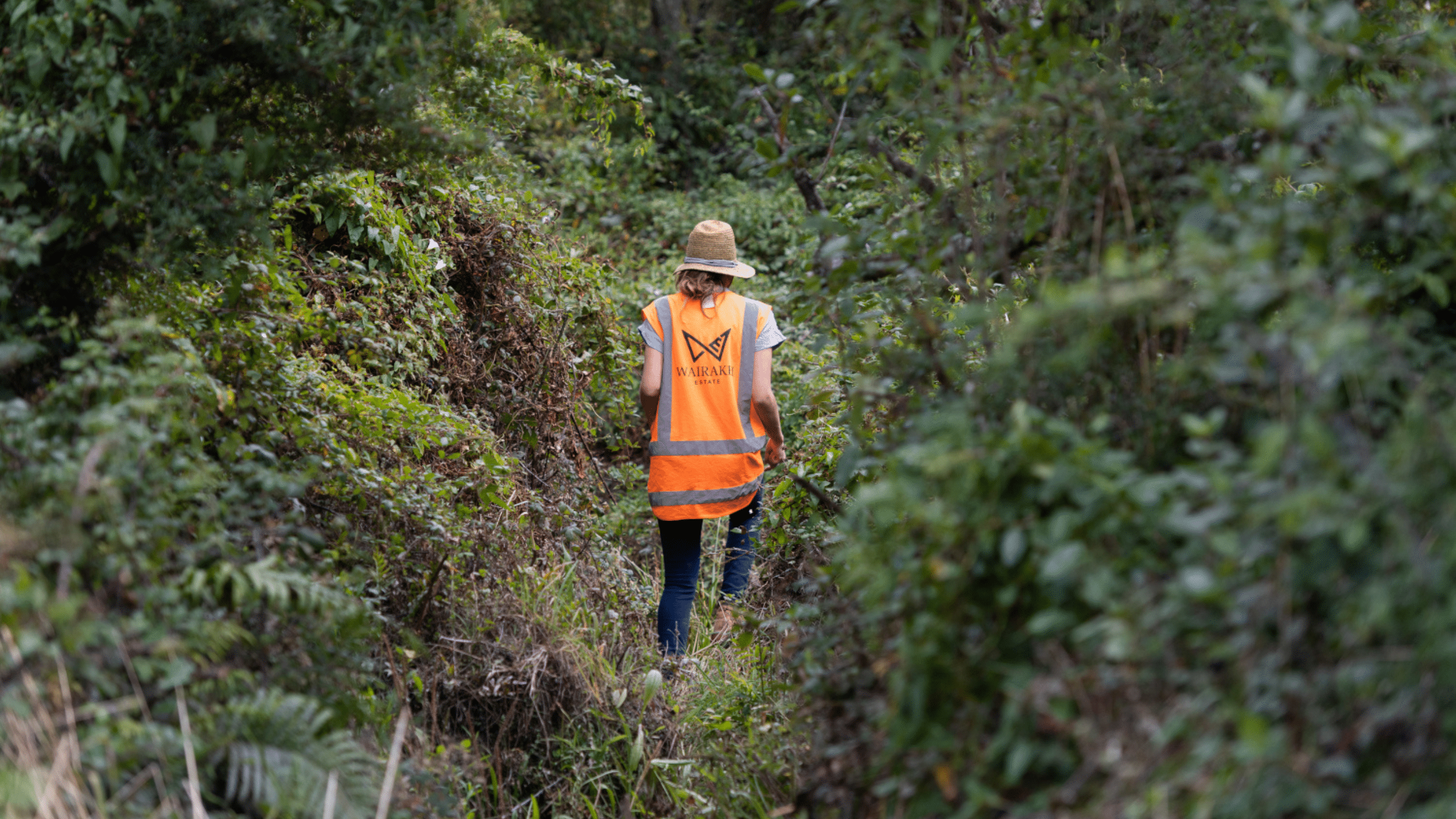Connecting city to waterfront
Tramco Managing Director Angela Bull loves the diversity of property types the company manages – with central Auckland commercial precincts to industrial and a large-scale pastoral farming estate in the central North Island, she says it is “a really exciting mix”.
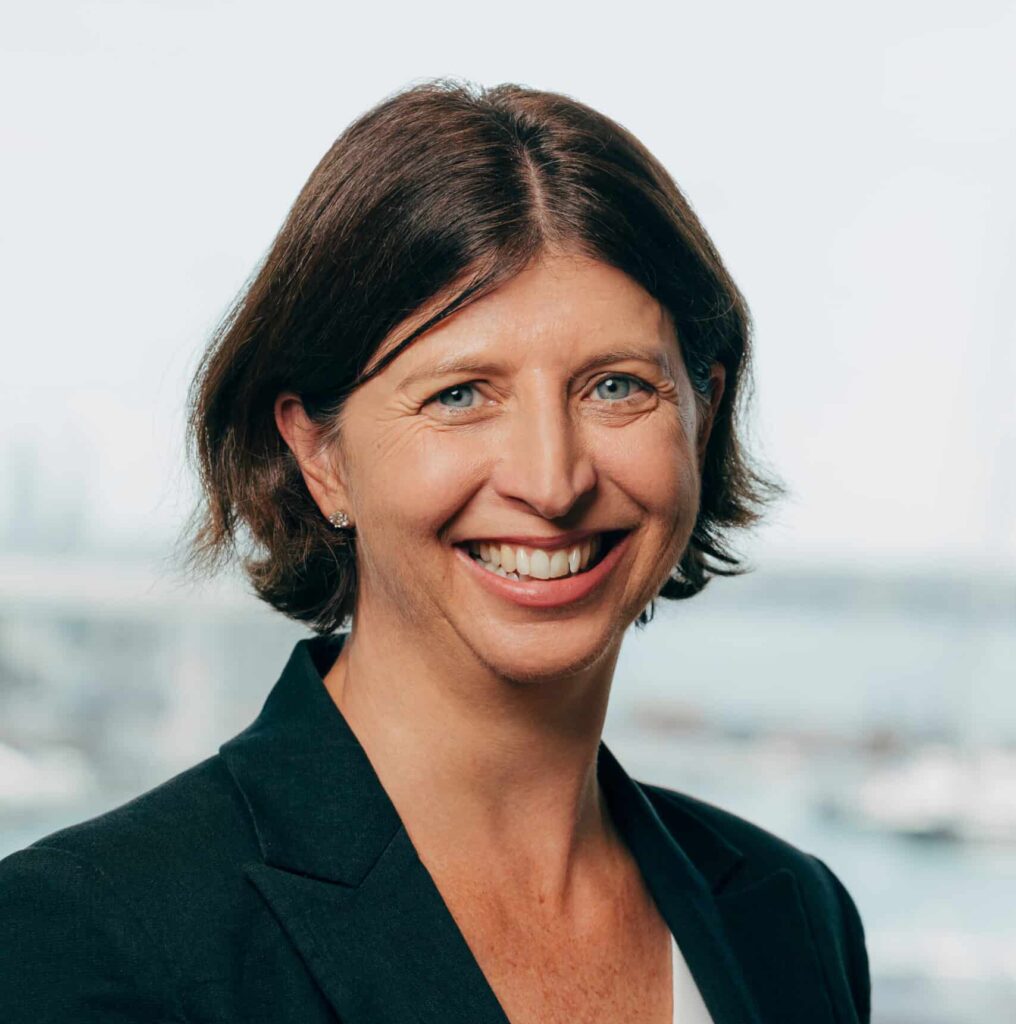
Perhaps the best known is the Viaduct Harbour precinct – “probably one of the country’s first examples of a master planned precinct”.
Twenty years on, it has stood the test of time. It is one of the jewels of the Auckland waterfront. Although, I could be biased in saying that!”
Bringing together residential, commercial office and hospitality venues, the marina, and the sea, the precinct creates a unique ‘live, work and play’ environment.
She notes that it provides a people-friendly accessible connection between the harbour and the city in a way the Port side of the city cannot.
“We are lucky enough to be part of an active and vibrant waterfront. It has that atmosphere where people can see the marina, the boats come and go, and enjoy the food and hospitality as well.”
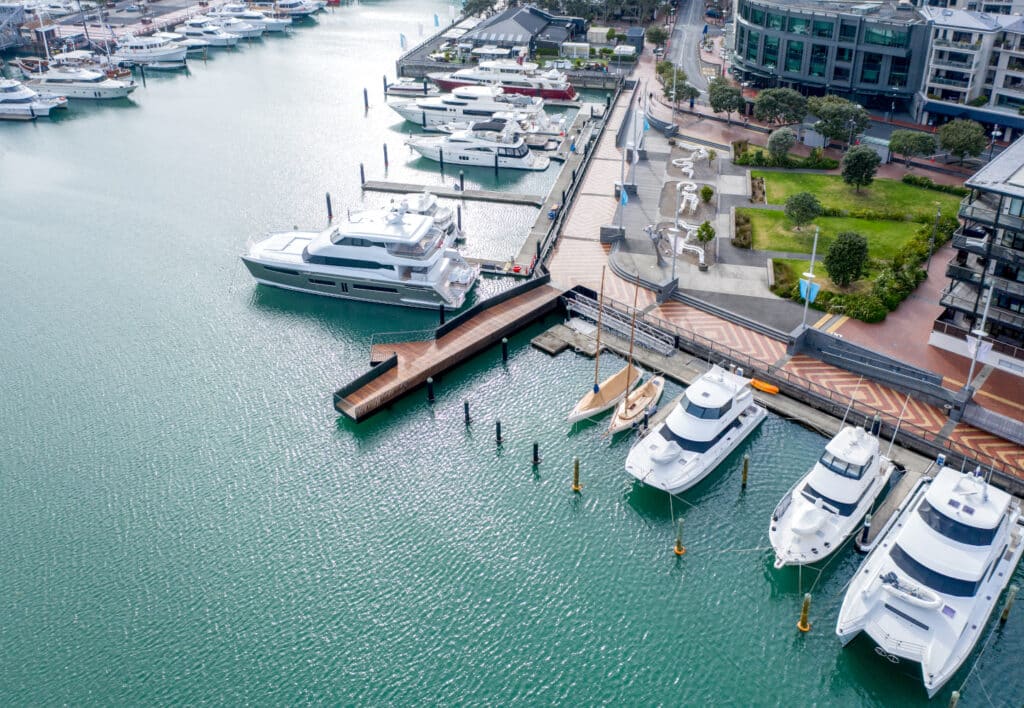
Angela says Tramco has invested in the precinct’s public space to improve the precinct’s appeal and to promote the city’s connection with its maritime environment.
“A stand out investment in public space is Te Mata Topaki – meaning ‘to hover over the headland’. As the name suggests, the jetty structure allows people to walk from the Waitematā Plaza promenade over the harbour waters.
Artist Graham Tipene (Ngāti Whātua, Ngāti Kahu, Ngāti Hine, Ngāti Haua, Ngāti Manu) designed the structure with Landlab, as a collaborative project with Ngāti Whātua Ōrakei delivered by Viaduct Harbour Holdings. The concept evolved from a wharf extension to a sculptural form, representing a taurapa (stern of the waka). Glass barriers inserted at the ends of the viewing platforms further blur the boundary between city and harbour.
We wanted somewhere that was an experience, somewhere people could take their iconic Instagram shots of Auckland and experience the marine environment.”
“It has just been such a fantastic addition to the waterfront and Viaduct experience and has reminded me about the opportunity to really engage with our community.”
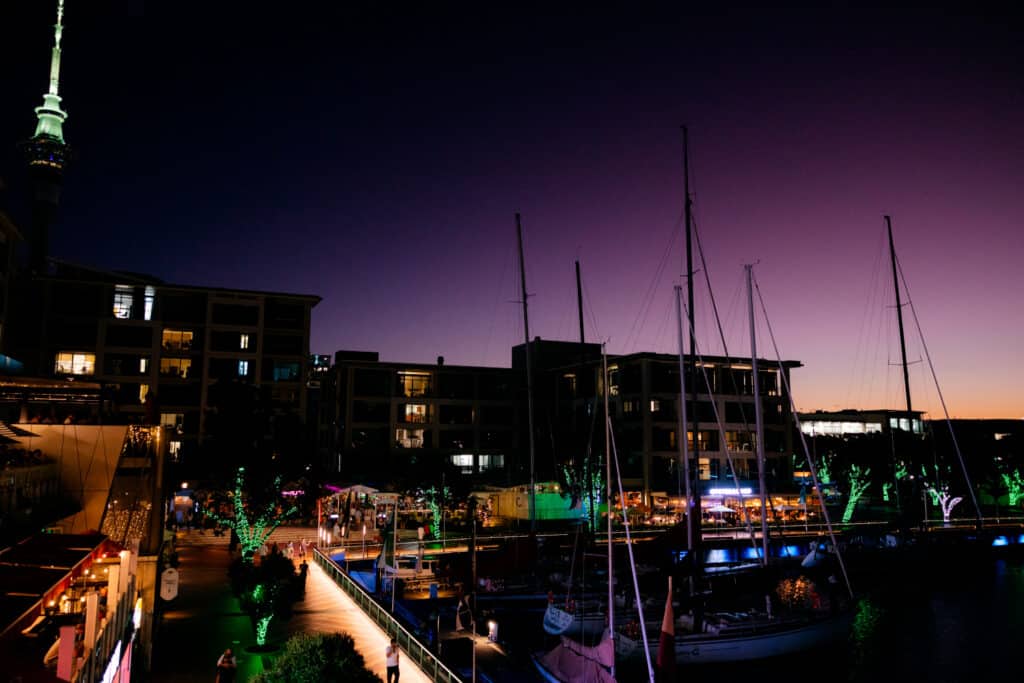
Legal pathway
Angela has taken career opportunities as they present themselves and has a “no regrets” mindset.
“Change and opportunity is healthy.”
She advises people entering the industry to be open to opportunities and “follow your value set – your instincts about the industry”.
Another piece of advice is to take in existing knowledge.
Find a good mentor – someone whose advice you respect and who you will listen to."
Angela began her career as a commercial lawyer, specialising in environmental law. After a decade, she “moved away from the six-minute units” to work in the Foodstuffs property development team that buys land and manages the consenting, design and development of future supermarkets.
“I was with Foodstuffs for about ten years as General Manager of Property,” she says. “It was a pretty exciting time because Auckland and Hamilton in particular, were seeing phenomenal growth and Foodstuffs was part of the planning and growth of those areas. Areas we now take for granted, like Ormiston, Beachlands, Silverdale and north Hamilton, were green paddocks.”
Then, seven and a half years ago, she moved to Tramco, which manages property portfolio investments for New Zealand families across different property classes in the North Island.
While the Viaduct Harbour precinct has the highest profile of those properties, perhaps the most surprising is Wairakei Estate – a 25,000 hectare estate near Taupō in Waikato.
Angela highlights the farm’s diverse operations. Its location in the Taupō volcanic zone allows renewable geothermal energy production, alongside forestry and farming activities.
“When I say it’s a farm, it’s actually a lot more than a farm,” she says. “It’s a really exciting mix of different land uses.”
She notes that there has been a positive change since she first began in the property industry around accepting and respecting the input of women.
“When I first started in commercial property, there were very few women involved. That’s changed. It’s still got some way to go, but in terms of voices at the table and acceptance – it’s much more widespread.”
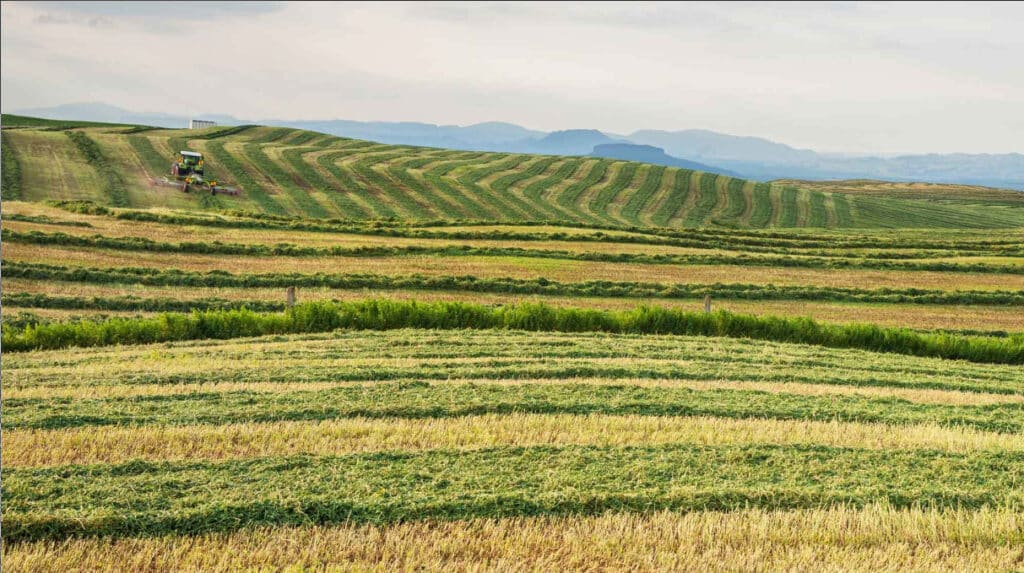
New ways of working
When it comes to the property sector she says it is important the industry “keeps challenging ourselves and asking how we can do it better”.
Angela notes that the industry is becoming much more aware of the need to adopt efficient, greener building practices to be resilient and respond to climate change. The devastating impacts of Cyclone Gabrielle and the Auckland floods have already elevated the industry’s thinking about infrastructure and building resilience to climate change, she says.
The entire infrastructure sector needs to embrace a long-term view of what, where and how it builds.
I think it will lead to a longer-term consideration of what we want our cities to look like. And how do we want to provide the right amenity and supporting network of cities and provinces, rural and commercial."
Angela says the development sector is “getting there quite quickly” with a much greater consciousness about the need for energy efficient buildings, end-of-trip facilities and looking at how a development works with transport networks.
“All of that is, I think, really encouraging. But it’s now going to be accelerated and we need to ask ‘what’s next?’.”
Covid 19 in 2020 resulted in new ways of working and doing business, she notes.
One business she has spoken to recently, has just moved into new premises.
“They designed for only 70 per cent of their team being there at any one time,” Angela says. “No longer do we assume that all of our team will need to be in the office at once, and they will all need a desk and they all need to be in the office from 9-5. People’s behaviours and the way they work have definitely changed.”
I absolutely think there is still a place for the office but it will be interesting to see how we reset ourselves in terms of the way we work and how we interact socially with each other.”
She also believes the Covid pandemic disrupted the “natural property cycle”, which was probably due for a downturn about the time Covid hit. The impact of that is now starting to be felt.
“I think it had an artificial effect on the property cycle. Now we are seeing the after-effect of a lot of that Covid money-spend in terms of interest rates and economic conditions. That has seen a reset of the property cycle.”
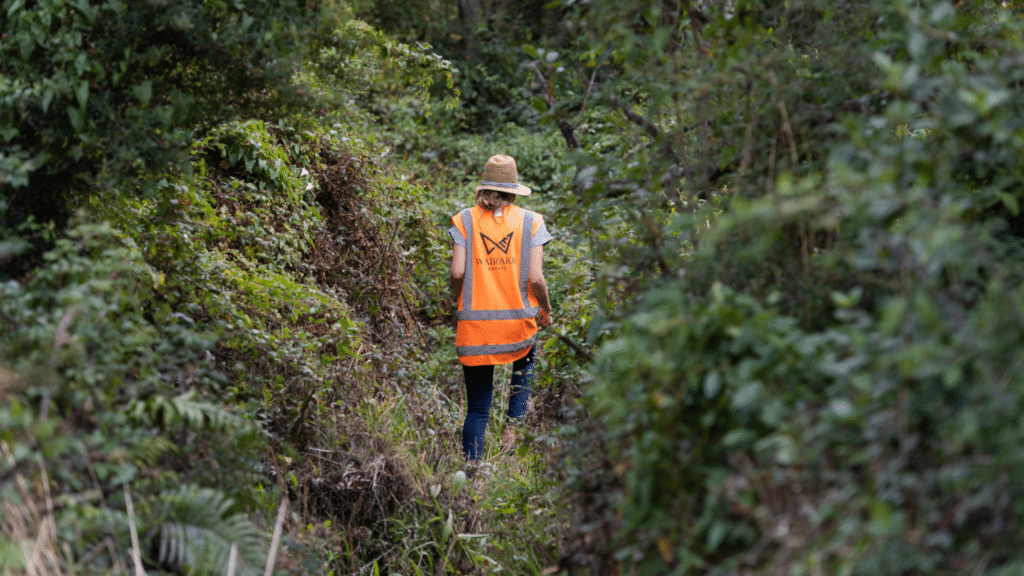
Advocacy and interaction
As a board member of the New Zealand Property Council, Angela says one key benefit is that it is a forum for the industry to come together and collectively tackle issues it is facing.
“Advocacy is a large part of what we do”.
Angela first became involved in the Property Council as a committee member for the Auckland branch. She was appointed to the National Board in November 2021.
“It is an opportunity to contribute some thought-leadership as part of the Board, thinking about those macro issues around the industry’s needs. The Property Council does an outstanding job in that space in particular.”
She says there are many ways people in the industry can benefit from membership, including by having events which allow them to get to know others within the industry.
“The other piece I think the Property Council does really nicely, is the collegiality with its members,” she says. “There’s everything from conferences, webinars, social events.”
She says there are people doing “outstanding things” in the industry, and the Property Council is committed to communicating their achievements.
It is also trying to engage with members directly for their insights and feedback on issues.
When you have a busy day and a busy diary, it can be overlooked. But that contribution can be really useful.”
About the City Shapers Series
The City Shapers Series is a collection of interviews with some of Property Council’s most prominent members. The series is about showcasing the people in property – the city shapers who lead extraordinary teams, develop exemplary projects and demonstrate the very best of the New Zealand property industry.
We aim to highlight the property industry’s role as an important contributor to New Zealand’s economy and our members as ‘city shapers’, building communities for Kiwis to live, work, play and shop.
Author: Felicity Wolfe

